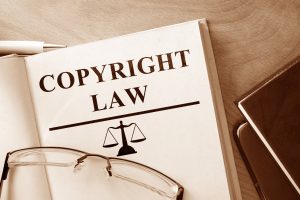Music is created daily in various formats, including radio commercials, new number-one hits, and film soundtracks. Anyone who makes music, regardless of genre, is protected by music copyright laws. This protection ensures that composers, recording artists, producers, and other creatives are correctly recognised and compensated for their efforts.
Any music performed in public that is to be included in a show or broadcast must have the permission of the song’s copyright owner. The term used to describe this authorisation is ‘licencing’ or ‘clearing’ a piece of music.
To obtain the appropriate licence and avoid potentially costly copyright infringement, you must first have a clear idea of what you intend to do with the music, covering the copyright my artwork category.
Examine some of the topic’s less well-known aspects.
- In today’s music, what types of copyright protection are available?
There are two types of copyright for the music, which we’ll go over in more detail below. The traditional © – ‘C in a circle’ copyright applies to the composition, musical score, lyrics, and any artwork or cover designs. Each of these is subject to copyright in its own right, though you can include them all in a single registration if they all have the same copyright owner(s), which is not usually the case. The letter ℗ – P in a circle, which stands for ‘protection against unauthorised reproduction’, denotes the copyright that applies to the sound recording itself.
- What is the method that allows this to happen?
Consider the following scenario: you want to record and sell your version of Bach’s Brandenburg Concertos, set in 1721. J.S. Bach has been dead for more than 70 – 75 years* (actual period may vary depending on country legislation) would not pose a problem itself would be free of copyright and accessible as a public domain work.
If you did the work yourself and documented it, you were not infringing on anyone’s intellectual property. However, your annoyance would be justified if someone simply duplicated your tape and began selling it.
The sound recording’s copyright comes in handy at this point. The unique nature of this scenario is recognised by copyright law, which provides sound recordings with separate protection from the underlying work. Copyright in a sound recording in the United Kingdom is valid for 70 years from the date of its initial distribution or publication, whichever comes first (or 50 years from the year of recording if not released during the 50 years). Furthermore, depending on the regulations of the respective countries, the actual time may vary significantly from one country to the next.
- What does it mean to profit from someone else’s labour?
If you use music samples by other writers in your work, make sure you have their permission before publishing or selling it in any form. If you’re going to use loops or samples from sample collections or other sources, make sure they’re either free to use or that you have permission to use them first.
- How do I obtain permission?
If you need permission to use a piece of music, your best bet is to contact the work’s last known publisher. They are likely to understand how to obtain permission to use the work (because they must have done so themselves) and who you should contact. If the piece is by a U.S.-based author or composer, contact the American Society of Composers, Authors and Publishers, BMI (Broadcast Music Inc), or SESAC.
- How about the band members’ understanding?
When composing music as a group, we recommend you draft a formal agreement to address issues such as who owns which member’s rights and how revenue will be distributed if members of your group leave. For commercially successful bands, incorporation is another option. Members of the band would own stock in the band/business in the same way they would own stock in a traditional corporation. When band member decides to leave, they usually sell their shares to the other band members.
- Does Copyright protect a band’s name?
Single words and slogans, as well as names, are not protected by copyright. On the other hand, names can be saved as a trademark at the regional level, which can be done through national patent and trademark offices. To be considered, the character must be unique, not misleading, not in violation of the law or morals, and not identical to any other brand names that have already been registered.
Bottom-line
You should never assume that a piece of music is free to use without obtaining the necessary copyright permission. Always double-check with the copyright holders, who will also tell you about the licencing and fee procedures. And to clear your doubts over several concerns related to ‘copyright my work’, the Copyright Service is here to help you understand better. Visit our website for more information on what copyright protects and how you can use it.


